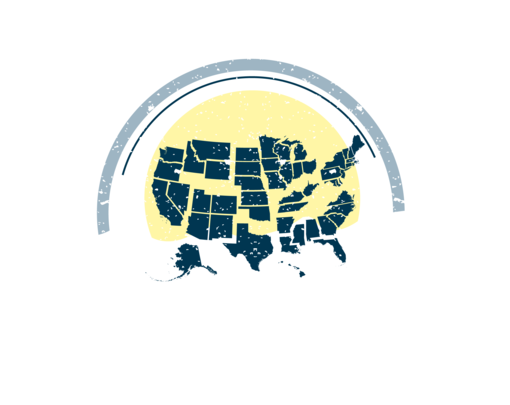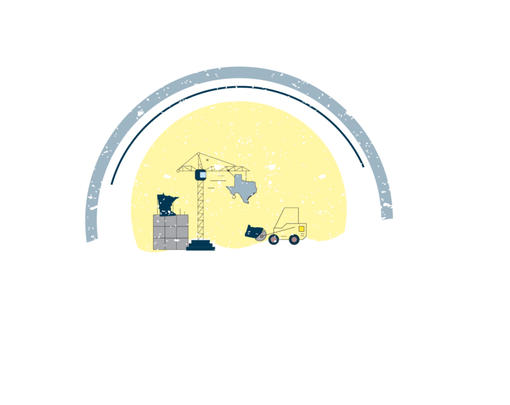Why is pluralism necessary to guarantee ecologically sustainable ends?
In the same way that it is a mistake to conceive of the “economy” as an absolutely coherent functionalist system, shot through with the same logic and institutional dynamics at every point, it is a mistake to approach the “environment” as a single monolith that needs a kind of uniform defense. Instead, securing the health of the Earth’s ecological systems presents a plethora of challenges, all demanding responses that are appropriately scaled and attuned to the specific dynamics of the specific problems. Some problems—like carbon levels in the atmosphere—are truly global, and require a global response. Others, like sprawl, may require action primarily at the level of the metropolitan region. Still others—like overconsumption—may require a revolution in individual and collective mindset and behavior. All demand attention to institutional requirements as well as political and personal change.
It is nonetheless clear that the profit-driven and growth oriented dynamics of capitalism lie behind a number of our current ecological challenges. Capitalism, however, has not cornered the market on ecologically destructive outcomes. The state socialist experiences were worse in many environmental respects. A systemic design different from both is clearly necessary. It is only through weaving together mutually supporting institutions at a plurality of scales that we can build a truly effective and resilient approach to guaranteeing a healthy planet.
What are the key strategies for environmental protection in the Pluralist Commonwealth?
Above all, EVOLUTIONARY RECONSTRUCTION and DISPLACEMENT are critical. If corporations following narrow profit goals must prioritize GROWTH, disrupt communities, create inequality, and undermine local ecological relationships, new institutions attuned to the environmental ecological requirements of the era in which we live need to become central to development.
At one level this involves the construction of new cooperative, municipal, and state economic institutions. At another level inclusive neighborhood-wide and city-wide OWNERSHIP patterns that directly institutionalize and “internalize” community inclusive values and interests are important. Through the pressures of competition, corporate institutions are driven to reduce costs, dumping pollution and other environmentally destructive outcomes on the larger local, state, or national community. The same is true even for many larger scale worker-owned businesses, which may be forced to reduce costs to compete whether they like it or not.
Broadly speaking a CULTURE of COMMONWEALTH, grounded in a sense of ecological stewardship and shared responsibility, is indispensable, especially if we want to challenge a paradigm that depends on the assumption of unlimited GROWTH and unrestricted consumption. What is required are new institutions that inherently internalize (rather than “externalize’) costs and that are inherently more attuned to ecologically sustainable outcomes. When a local neighborhood or municipal enterprise (or joint enterprise involving cooperatives in a more complex community-related structure) faces a choice between reducing costs and polluting the community or neighborhood, its calculations are different from that of a private firm. No longer can it simply externalize costs by cutting down on environmentally necessary but expensive processes. To do so simply means burdening the community itself with environmental degradation. By virtue of design, community-inclusive economic institutional forms inherently internalize externalities.
Other strategies are also important at different levels of scale. At the national level, public banking and publicly-owned transit systems freed from capitalist competition can be more easily oriented toward ecological goals than their private counterparts. For example, the crisis that produced the public bailout and de facto nationalization of General Motors and Chrysler might well have opened the way to restructuring these corporate giants as new collectively owned enterprises focused on the development of a national network of sustainable mass transit and high-speed public railways. A related direction is the conversion over time of corporations now primarily devoted to military production to domestic needs and the reshaping such firms in the direction of joint worker-community ownership at a national (or regional) scale.
Through PLANNING, the astronomical economic and environmental costs of throwaway cities and irrational development can be avoided, and a stable institutional framework for more livable communities and more localized and ecologically sustainable economies can be built. Again, this ultimately requires new economic institutions to displace large corporations that regularly abandon communities, such as has happened in many rustbelt cities.
What are some promising on the ground developments that point toward an ecologically sustainable Pluralist Commonwealth?
Although neither the national press nor local newspapers have much interest in the subject, throughout the country there is, in fact, an enormous amount of experimentation going on in the development of new, more DEMOCRATIC and more ecologically appropriate institutional designs. Take just one sector—green energy—for example. Worker and consumer cooperatives across the country now increasingly draw upon existing public funding programs (a PLANNING mechanism) to install solar power, and millions of individuals nationwide have embraced a new culture of ecological responsibility to insulate, add solar, and take their own homes at least partially off the traditional electrical grid. At the firm level, Colorado’s Namaste Solar is an example of a worker cooperative that specializes in all phases of solar energy systems, from design to installation.1
At the neighborhood level, purchasing cooperatives like DC SUN help neighbors organize for political change and to obtain bulk discounting for their solar panel installations.2 A similar alternative—community solar gardens—in cities like Bainbridge Island, Washington or University Park, Maryland allow individuals who cannot put solar panels on their own roofs to own or lease panels in larger community solar arrays.3
At the city level, (see PUBLIC) activists are fighting to defend a planned remunicipalization of the Boulder electrical utility as a way to speed up the green transition. (Publicly owned utilities—together with electric coops—make up nearly 90 percent of all electricity providers and generate over 20 percent of all U.S. electricity.4 Many cities are also taking a more comprehensive approach to development. Unlike much sustainable community development, which takes the form of projects undertaken in isolated silos, “eco-municipalities” take a systemic approach, committing to reducing dependence upon fossil fuels and synthetic chemicals, minimizing encroachment upon nature, and meeting human needs fairly and efficiently in all aspects of city management and PLANNING. Since 2005, almost 30 US communities have joined the ranks of eco-municipalities.5
At the state level, California’s Renewables Portfolio Standard (RPS) currently requires all electric utilities to source 33 percent of their total electricity sales from renewable energy by 2020. States can also support Community Choice Aggregation policies that allow communities and local governments to collectively bargain with energy providers to obtain lower rates or a higher percentage of green energy.6 CCA programs can be found in communities across Illinois, in Cleveland, Ohio, and Lowell, Massachusetts.7 The building of a new system of sustainable energy is not going forward through one strategy alone, but through multiple, mutually reinforcing strategies and institutional changes operating at different scales.
Finally, environmental innovations are occurring, not only in energy production, but in areas as diverse as the way housing gets funded or food gets produced. In Oregon, for example, the St. Vincent de Paul Society of Lane County operates 15 retail thrift stores and other recycling-based businesses that have diverted more than 25 million pounds of materials from landfills, while simultaneously funding more than 1,300 units of affordable housing since 1988 and emergency and homelessness services for more than 16,000 people annually.8 Similarly, Habitat for Humanity operates hundreds of “ReStores” throughout the nation that also turn recycled building materials and furniture into revenue for affordable housing.9 In the food sector, meanwhile, hundreds of urban farms can be found in cities like Oakland, California, Portland, Oregon, or Cleveland, Ohio. In New York City alone, there are more than 700 urban farms and gardens. According to the Congressional Research Service, “in 2007, there were about 859,300 metropolitan farms in the United States, accounting for about 40% of all U.S. farms and about 40% ($115.7 billion) of the total value of U.S. agricultural production.”10
See also:
COMMONWEALTH, CULTURE, DEMOCRACY, ECONOMIC GROWTH, EVOLUTIONARY RECONSTRUCTION AND DISPLACEMENT, OWNERSHIP, PLANNING, PUBLIC
Further reading
Annie Leonard, “The Story of Solutions,” The Story of Stuff Project, October 2013, accessed November 3, 2016.
John Bellamy Foster, Brett Clark, and Richard York, The Ecological Rift: Capitalism’s War on The Earth (New York, NY: Monthly Review Press, 2010).
Kate Aronoff, “How to Socialize America’s Energy,” Dissent Magazine, Spring 2016.
- 1 “About Us,” Namaste Solar, accessed November 3, 2016.
- 2 “About,” DC Solar United Neighborhoods, accessed November 2, 2016.
- 3 Jason Coughlin et al., A Guide to Community Solar: Utility, Private, and Non-profit Project Development (Washington DC: US Department of Energy, November 2010), accessed November 3, 2016.
- 4 American Public Power Association, APPA Annual Directory and Statistical Report 2015-2016: U.S. Electric Utility Industry Statistics, (Washington, DC: APPA, 2016), accessed November 3, 2016.
- 5 Institute for Eco-Municipality Education and Assistance, “Eco-municipalities: Sweden and the United States: A systems approach to creating sustainable communities,” accessed November 3, 2016.
- 6 Kate Aronoff, “How to Socialize America’s Energy,” Dissent, Spring 2016, accessed November 3, 2016.
- 7 US Department of Energy, “Community Choice Aggregation,” US Department of Energy, accessed November 3, 2016.
- 8 “Mission & History,” St. Vincent de Paul Society of Lane County, accessed November 3, 2016.
- 9 “Habitat for Humanity ReStore,” Habitat for Humanity, accessed November 3, 2016.
- 10 Renee Johnson, et al., The Role of Local Food Systems in U.S. Farm Policy (Washington, DC: Congressional Research Service, March 12, 2013), 13, accessed November 3, 2016.





























